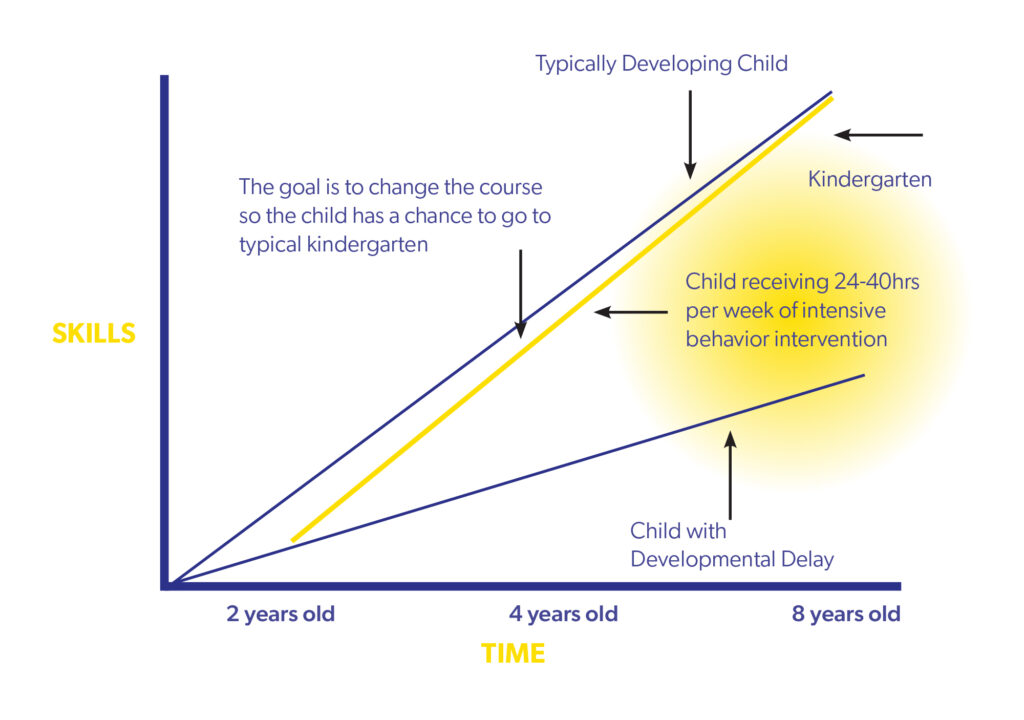10 Questions to Ask a Prospective ABA Provider

Thinking about setting up your child with autism services and want to know what questions to ask an ABA provider? We’ve got you covered.
There’s a lot to unravel when it comes to understanding Applied Behavior Analysis (ABA) therapy. Its history, findings, and ongoing research all have a role in how we use it today. As we transition from autism awareness to autism acceptance, it’s important to see how ABA therapy supports this change.
Walk through what ABA methods entail, what to expect in an ABA interview, and what questions to ask.
Need further support? Let’s talk about ABA treatments.
Top 10 Questions To Ask a Prospective ABA Provider
Applied Behavior Analysis (ABA) therapy is often misunderstood. One of the biggest misconceptions about ABA is that it exists to “fix” children with autism. However, this is simply not the case.
ABA therapy for children with autism is an evidence-based approach that enhances their quality of life by improving communication, behavior, lifestyle habits, social skills, and beyond.
ABA therapy has evolved since the 1960s using the latest evidence to work with the science of behavior for natural progression. This now includes a Verbal Behavior (VB) analysis. Children on the spectrum now have access to tools for all types of behavioral learning. This can range from improving communication skills to redirecting or eliminating inappropriate behaviors.
Equally important when using this method is that children develop, try, fail, try again, learn, and grow with positive reinforcement in a welcoming environment. Each therapy session is a chance for the child to act and react how they need to without judgment with an experienced ABA therapist at their side.
We’ve broken down the questions you should ask into 3 key sections:
- Experience
- Learning
- Lifestyle
Experience Questions To Ask In An ABA Interview
1. How Long Have You Been In The Field?
You should be cautious of newer practitioners as they may need to gain the right amount of experience for your case. However, you should take the time to get to know them or any other therapist by asking about their…
- Educational background
- Licenses
- Past experience
- Professional associations and groups
- Mentors and mentorship opportunities
- Conferences and ongoing professional development
If your child needs a more extensive ABA plan, you may want to specifically ask for an ABA practitioner who has more years of experience and knowledge to offer support. Keep in mind that this may be a tough request to achieve as there is a national shortage of qualified professionals who can provide effective behavioral interventions. But, it doesn’t hurt to ask.
2. What Experience Do You Have That Supports The Needs Of My Child?
Ask about an ABA therapist’s previous experience and how your child’s progress will be tracked. If they’ve worked with children aligned with your child’s needs before, ask them to share their professional experience with you.
3. Do You Have A Particular ABA Style For…?
Aside from ABA therapy using a positive approach, this is also a good time to ask questions regarding specific areas of treatment like speech, language learning, and preferred ways of reducing problem behaviors.
Ideally, families must be comfortable with the strategies used in any therapy. By working alongside your child’s therapists, you can better ensure that your child’s experience is consistent.
Learning Questions To Ask In An ABA Interview
4. Can You Tell Me About Your Mentor?
An ideal ABA professional should have a mentor who is showing them the ropes as they get comfortable with their role. During their professional journey, the mentor should also be able to direct mentees to resources as well as challenge them to continue to learn and grow.
5. How Often Do You Get Mentored?
Take a few minutes to ask them about their ongoing mentoring relationship. A top-notch ABA therapist may have one or several further educational interests.
6. What Is Your Mentor’s Experience?
Asking this question gives you another chance to dig deeply into your ABA professional’s background. You should also use this information to get to know them and their teaching methods better.
7. Why Does My Child Need So Many Hours Of Assistance?
In most cases, children are given anywhere between 20-40 hours of ABA therapy per week. Feeling alarmed about the amount of hours your child is recommended for is a normal feeling. Be sure to ask for clarification so you understand the why behind the recommendation.

Learn more about ABA services for children.
Lifestyle Questions To Ask In An ABA Interview
8. How Involved Do Families Need To Be In Identifying Goals & Objectives?
Being involved means being honest about the difficulties your child is having to find the right therapies. Many people know that ABA therapies address a multitude of issues like sleeping, eating, and bathroom behavior. However, ABA therapy can also address fears like haircuts and doctors’ appointments, a lack of fears that can lead to danger, and much more!
Furthermore, family involvement throughout therapy is encouraged as much as possible. Your child needs your support even if you can’t be the one to offer direct support at the time.
9. Will Other Methods Like Hypnotherapy Help My Child?
Please feel free to bring up any other therapies your child is involved in at your interview to discuss with your child’s ABA therapist. If additional therapies work for your child, this is great news! However, seeking other therapies brings us to our final question to ask…
10. How Much Time Do I Need To Devote To Increase The Chances Of Progress For My Child?
The time you spend on ABA treatment for your child will depend on how much time other therapies take away from your child’s ABA plan. You may need to talk about making serious adjustments to move forward for the best results.
What To Expect For Your ABA Interview Process
Nervous about your upcoming ABA interview? The process is simpler than you might expect. You can essentially look forward to 4 basic steps…
ABA Evaluation
An ABA therapist will talk to you about their use of Skill-Based Treatment (SBT) in Applied Behavior Analysis (ABA), and evaluate your child to determine what they need to make progress. This is a good time to get a tour of the facilities and ask any questions you may have.
Therapy Planning
This next step involves your child’s ABA therapist creating a plan based on using as much of a positive approach as possible to shape their behavior. Your child may be given a certain number of hours as a suggestion for optimal success. This is especially important for making future scheduling decisions.
Intervention Implementation
With an understanding of your child’s ABA therapy plan, it will take a team effort to stay on track. As your child undergoes therapy, this is a good chance to get involved, when possible, by connecting with others in the ABA community.
Measure Progress
Progress is measured on a case-by-case basis. Because ABA therapy is data-driven, your child’s progress will be tracked based on careful data collection and analysis.
Shaping Behavior With Positive Therapy Practices
As you interview ABA therapists, it’s okay to ask questions to get to know them and their therapy style. You (and your ABA team) both want what’s best for your child. This is why we work so hard to cultivate a loving and open community with families, caregivers, and friends. Discover ABA services for children.
